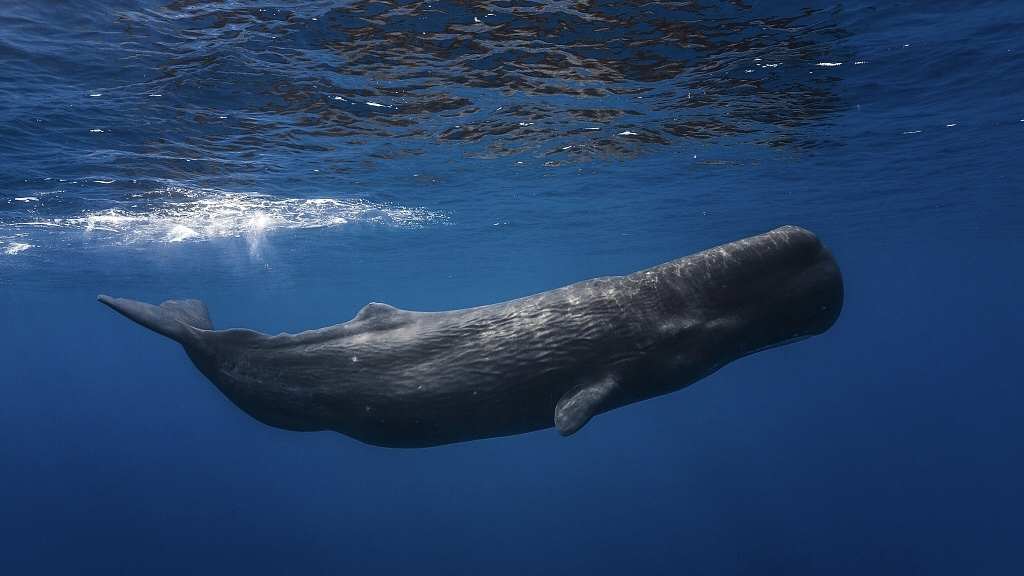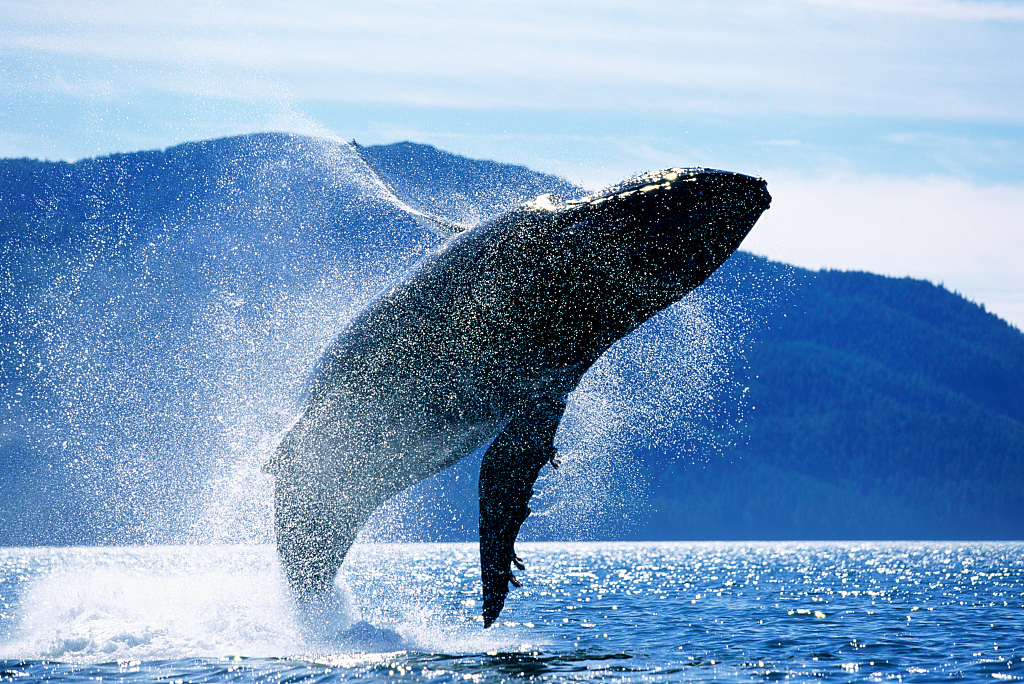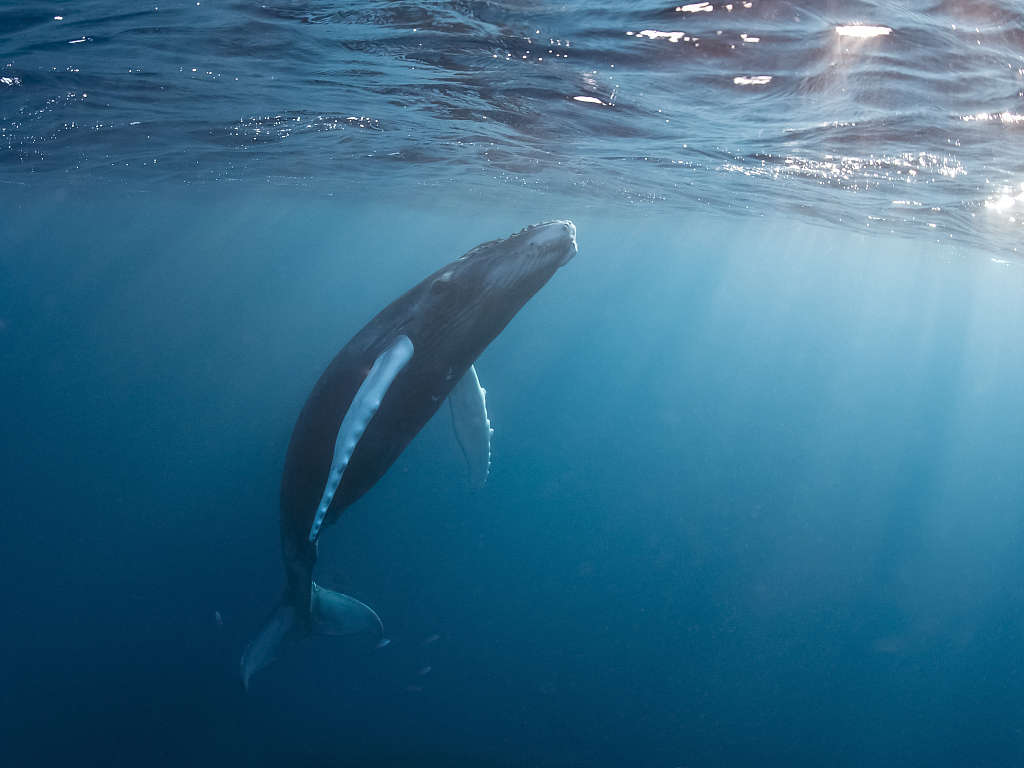

Japan has announced it will resume commercial whaling in the country's exclusive economic zone, drawing a mixed bag of reactions from environmentalists.

A whale in the ocean. /VCG Photo
Greenpeace expressed its great disappointment as the decision would hurt whales which are already facing pressure.
Oceans campaigner Jessica Desmond said whales are facing climate change, over-fishing, plastic pollution, and sea-bed mining. What needs to be done to protect the oceans is to eradicate all of these threats and start with those the easiest to stop like commercial whaling.

Jumping. /VCG Photo
However, the Sea Shepherd Conservation Society, a non-profit marine conservation organization, held a different opinion, considering the decision a progress towards the end of commercial whaling.
Campaigner Michael Lawry pointed out that Japan has retreated to their own territory and hopefully the resistance in Japan will increase.
Some environmental groups have called for collective pressure on Japan regarding the whaling issue at the G20 summit in Osaka last weekend. While Japan has insisted on the limitation and sustainability of its fishing activity, it failed to convince Greenpeace.

A whale moves to the surface of the water. /VCG Photo
The campaigner of Greenpeace emphasized that the idea of setting a quota for hunting whales is inappropriate.
While consuming whale meat is a cultural tradition in Japan, in fact, only few eat it. Statistics show that only 50 grams of whale meat is consumed per person on average every year.
(Cover image via VCG)
(If you want to contribute and have specific expertise, please contact us at nature@cgtn.com.)

Copyright © 2018 CGTN. Beijing ICP prepared NO.16065310-3
Copyright © 2018 CGTN. Beijing ICP prepared NO.16065310-3